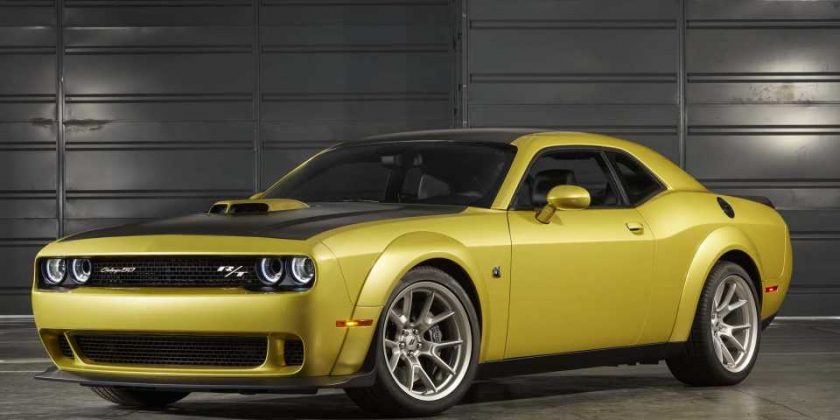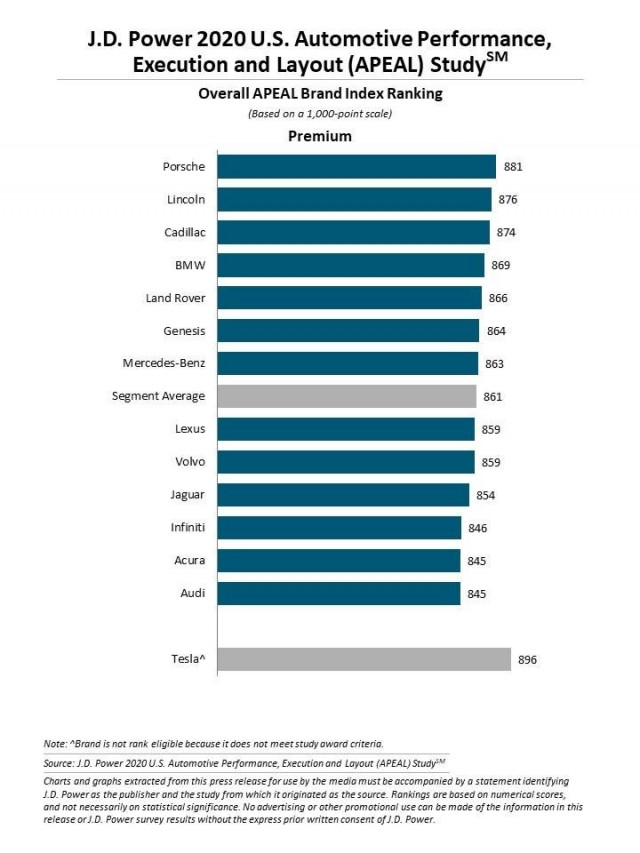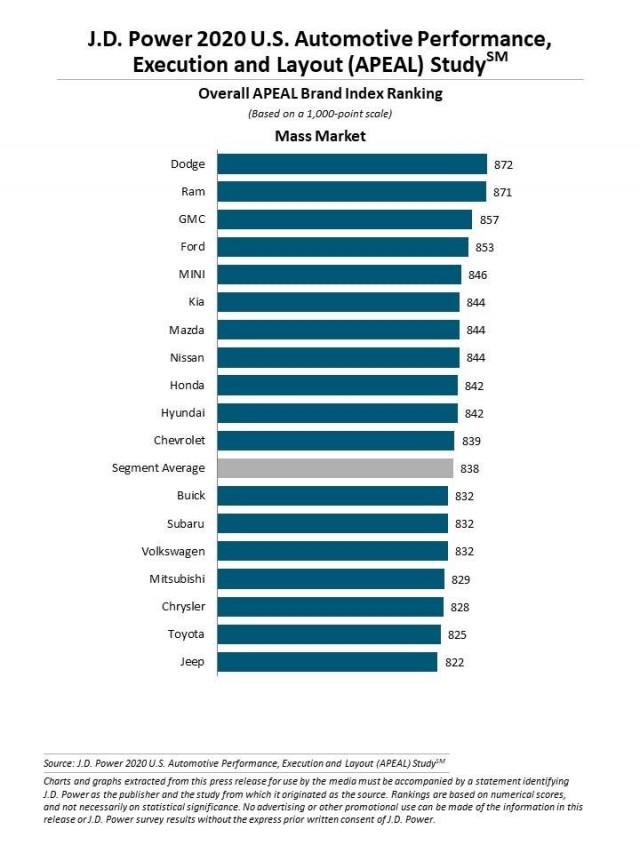New car owners of Tesla, Porsche, and Dodge vehicles experience the greatest level of emotional attachment in the first 90 days of ownership, according to a J.D. Power study released on Wednesday.
Measuring automotive performance, execution, and layout, the APEAL study is meant to measure the joy new car owners experience when driving and owning the vehicle.
The study assessed 37 attributes on the experience of driving a new car based on the entire journey, from the moment you see it to the sound the engine makes to the comfiness of the seats and the size of the cupholders, all the way through updating apps in the first 90 days of ownership.
Redesigned for its 25th year, the APEAL study serves as a happy contrast to the more well-known Initial Quality Study that asks new car owners to report any problems or complaints. For only the second time in the studies’ history, Dodge came out on top of both, meaning Dodge owners reported the fewest problems and complaints, and the greatest level of pleasure in their purchase.
“(APEAL) is much more around how the customer feels about the vehicle and how it enhances their life rather than a sort of engineering look at the vehicle,” Dave Sargent, VP of automotive quality at J.D. Power, explained in a call. “It’s much more about the customer experience than the physical attributes of the vehicle.”
Contrasted with problems cited in the IQS, the APEAL study might provide more meaningful data for new car shoppers and automakers.
“IQS gets a lot of attention, but APEAL is more important for customers and automakers,” Sargent said. “More appealing products means automakers can charge more, it drives brand image, advocacy, loyalty, and residual values.”
The 87,282 respondents of APEAL and IQS who took ownership of a new car between November through February of 2020 reveal an interesting contrast in the subjective measure of overall satisfaction.
Tesla provides a unique look in how brand image can overcome specific problems. Tesla owners reported the highest number of complaints of any automaker in the IQS, but also the greatest level of enjoyment in the APEAL study. Overall, Tesla owners are pleased with their purchase despite the high number of issues.
There’s an asterisk, however, because, well, Tesla. When the study was redesigned for 2020, Tesla owners were included for the first time, but, unlike every other automaker, Tesla would not grant J.D. Power permission to survey its owners in the 15 states that require permission, including California. Not only is Tesla based in California, the Model 3 is the bestselling car in California through the first quarter of 2020.
So, technically, Tesla doesn’t count in the APEAL findings. But, based on the 1,248 surveys completed by owners in the 35 other states, J.D. Power extrapolated to come up with a score of 896 out of 1,000 possible points.
For Premium brands that count, Porsche took top honors once again for the 15th time in 16 years with a score of 881.
2020 J.D. Power APEAL Premium results
For mass market brands, Dodge scored 872, narrowly edging out Ram in a reversal of last year’s results.
Performing well in both APEAL and IQS is no trade secret. Brands like Dodge, Tesla, and Porsche have a limited product lineup that caters to a certain audience.
“Dodge…targets a specific audience,” Sargent explained. “Stick a huge engine in it and if everything works as it should, that’s a pretty good recipe for a happy set of owners.”
Same could be said for Porsche owners, even though the brand has expanded from its sports car roots to bestselling models such as the Macan and Cayenne SUVs.
RAM only makes trucks, but its owners gave the highest marks to the Ram 1500 over competing trucks.
“The more models you have, the harder it is as a brand to be the best because you have to be the best across the entire model lineup,” Sargent said.
Ford’s fourth-place ranking of 853 is noteworthy, paced by high levels of enjoyment in the Escape. The 2020 BMW X6 ranked highest of all individual models.
2020 J.D. Power APEAL Mass Market results
In general, the larger and more expensive the vehicle, the less likely owners are to admit to being dissatisfied.
“Larger, more expensive vehicles will perform better than smaller, less expensive vehicles,” Sargent said.
The annual rankings are also influenced by the product cycle, with brands rolling out more new product scoring higher on APEAL. For brands coming in below average at 838, such as Subaru (832) and Jeep (822), what their owners love about them might not be accounted for in the study.
“Image is a big part of it,” Sargent said. “The feeling that you could go anywhere, that you’re part of a club…but we don’t measure that.”
Source: Read Full Article


